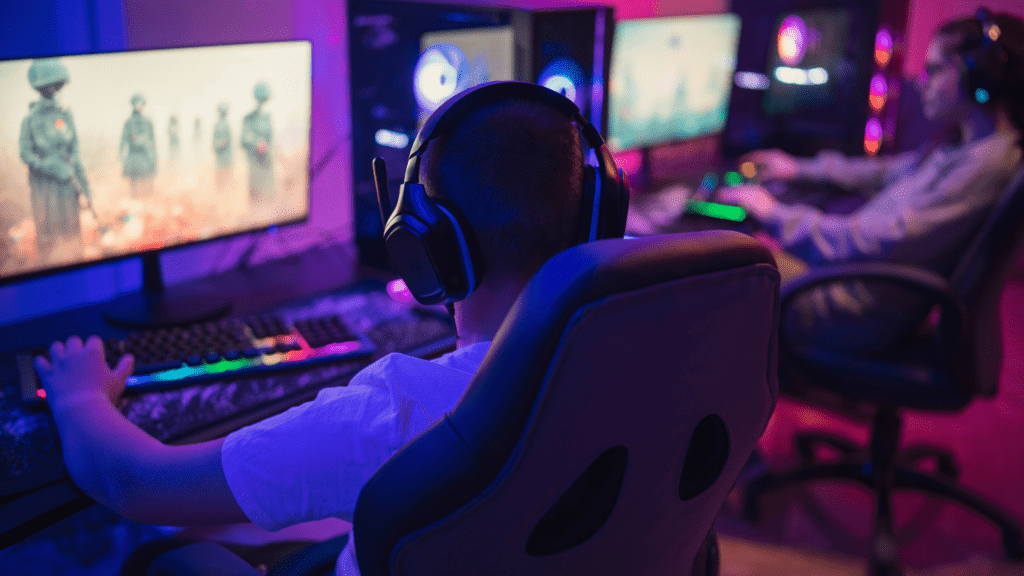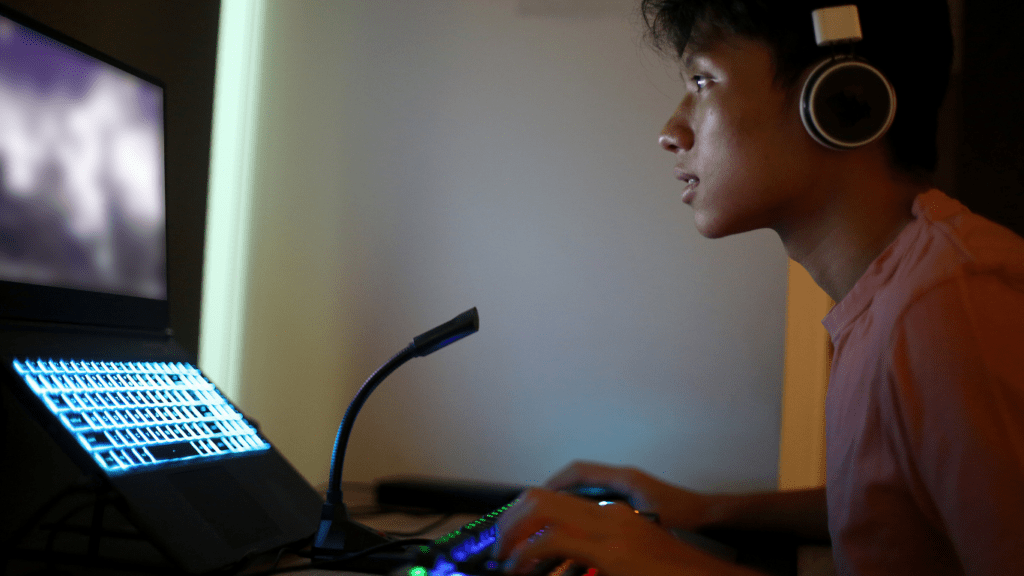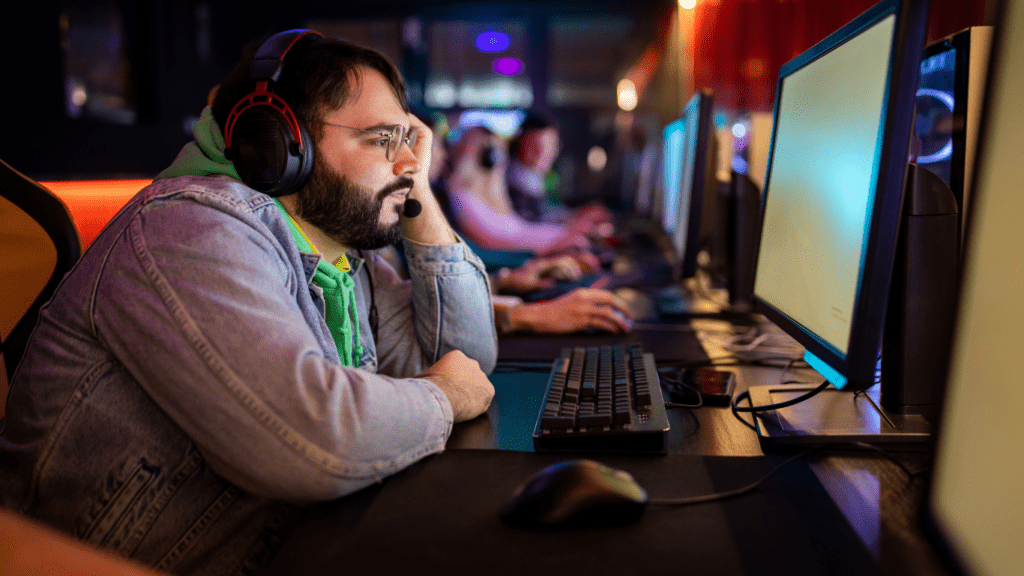Competitive gaming has transformed into a global phenomenon, with top esports players captivating millions with their skill and precision. But what really sets these elite players apart? It’s not just lightning-fast reflexes or countless hours of practice—it’s their mindset. The mental strategies they use to stay sharp, adapt under pressure, and outthink opponents are nothing short of fascinating.
Understanding the Esports Landscape
Esports is a rapidly growing industry, spanning countless genres like first-person shooters (FPS), multiplayer online battle arenas (MOBA), and real-time strategy games. Titles such as “League of Legends,” “Counter-Strike: Global Offensive,” and “Dota 2” dominate global tournaments, drawing millions of viewers annually.
Professional gaming thrives on structured events, from regional qualifiers to world championships. Organizations like ESL and Riot Games organize tournaments that feature prize pools exceeding $40 million annually, with some individual events offering over $1 million for winners. Streaming platforms like Twitch and YouTube amplify esports’ reach, enabling players and teams to gain global recognition.
Players often specialize in specific roles—like tank, support, or carry—to form effective teams. For example, in MOBA games, a player in the support role manages map vision, while a carry focuses on securing kills. Strategic collaboration determines outcomes in team-based games.
The esports audience is equally diverse, comprising fans from multiple demographics. According to Newzoo, around 532 million people are expected to watch esports globally in 2023. Teams leverage this visibility by forging sponsorship deals, creating a sustainable ecosystem.
Staying informed about game meta shifts and tournament structures is critical for aspiring pros to succeed within this evolving space.
Mental Resilience and Peak Performance
Top esports players excel because they cultivate exceptional mental resilience, which enables them to perform consistently at the highest level. Their ability to sharpen focus, sustain composure, and manage stress sets them apart in a competitive industry.
Mastering Focus and Precision
- Maintaining focus during extended gaming sessions is crucial for elite players.
- They rely on structured routines, which may include pre-match visualizations, to mentally prepare for consistent performance.
- Focus-training tools, like reaction time apps and aim trainers, help them refine their precision in high-stakes scenarios.
- By minimizing distractions and optimizing their gaming environment, they ensure sustained concentration.
- Consistency in precision is achieved through meticulous practice schedules.
- Players often dedicate hours to mastering in-game mechanics, like landing headshots in “Counter-Strike: Global Offensive” or executing frame-perfect combos in “Street Fighter.”
- Monitoring performance analytics further helps them pinpoint weaknesses, paving the way for improvement.
Coping With Pressure and Stress
Competitive pressure can disrupt decision-making, but pro players develop strategies to stay composed. Effective stress management often involves mindfulness techniques, such as deep-breathing exercises, allowing them to reset during matches. Some players work with sports psychologists to enhance their mental fortitude through cognitive behavioral strategies.
In team dynamics, communication reduces tension in critical moments. Teams address mistakes constructively, maintaining cohesion under pressure. Recovery from losses focuses on evaluating match performance objectively, avoiding emotional responses that could hinder future gameplay.
Rest and recovery also play a role in managing long-term stress. Professionals prioritize:
- proper sleep
- hydration
- breaks
to maintain mental clarity. Structured downtime prevents burnout, ensuring peak performance during tournaments.
The Role of Strategy and Analysis

Strategic thinking and detailed analysis drive esports success. Top players rely on adaptability and a deep understanding of opponents to maintain dominance.
Adapting to Dynamic Gameplay
Flexibility defines elite performance in esports. Players adjust tactics mid-game to counter unexpected scenarios, such as shifting enemy strategies or unforeseen map conditions. For example, in “Counter-Strike: Global Offensive,” professionals pivot team formations to exploit weaknesses in an enemy’s defense. Dynamic gameplay demands rapid decision-making, honed through hours of practice and reviewing past matches. Staying agile lets players respond effectively, enhancing their odds of victory.
Leveraging Opponent Analysis
Decoding an opponent’s patterns is critical. Players extract insights by studying tournament footage, focusing on tendencies like favored in-game items, route choices, or timing of key actions. In “League of Legends,” identifying a jungler’s movement habits can help preempt their ganks. Analytical tools track performance metrics, offering data-driven strategies to exploit weaknesses. By anticipating others’ moves, players maintain a strategic edge essential for high-stakes matchups.
The Importance of Physical and Mental Health
Top esports players know that optimizing physical and mental health is crucial for sustaining peak performance. Competitive gaming demands not only sharp reflexes but also resilience and focus.
Maintaining Physical Stamina for Endurance
Consistent training regimens keep players physically prepared for long sessions. I notice many pros incorporate light cardio exercises like running or cycling to boost stamina and improve circulation. Good posture and ergonomic setups prevent strain during hours of gameplay. Stretching routines reduce the risk of repetitive strain injuries, especially for wrists, neck, and back, which are commonly affected in gaming. Nutrition plans tailored for long-lasting energy often include balanced meals with lean proteins, healthy fats, and complex carbohydrates. Hydration plays a vital role in staying alert, with players typically drinking water throughout their gaming sessions.
Prioritizing Mental Well-being
Maintaining mental clarity separates top-performing players from the rest. I see them working closely with sports psychologists to enhance focus and manage stress. Practices such as mindfulness meditation and breathing exercises help regulate emotions during high-pressure matches. Scheduling time for rest ensures recovery from mental fatigue; sleep schedules and short breaks between practices are non-negotiable. Developing coping strategies, like reframing losses as learning opportunities, builds resilience. Pro players often rely on supportive environments by surrounding themselves with coaches, teammates, and mentors who contribute to their growth and psychological stability.
Training and Team Collaboration
Top esports players prioritize structured training and team synergy to stay competitive. Effective practice routines and cohesive teamwork enable consistent performance even under pressure.
Building Synergy With Teammates
Establishing team synergy enhances communication and decision-making during matches. I participate in regular strategy sessions where we analyze gameplay footage and discuss our roles within specific tactics. Consistent scrimmages with team members simulate tournament conditions, fostering trust and refining coordination for high-pressure scenarios.
Creating an open communication culture also matters. My teammates and I frequently provide constructive feedback to address weaknesses and reinforce strengths, ensuring everyone contributes effectively. For example, in “League of Legends,” our laners, jungler, and support collaborate closely to execute multi-role strategies for controlling objectives.
Continuous Skill Development
Refined skills give players a competitive edge in evolving game metas. I allocate hours daily to mastering game mechanics, such as aim accuracy in first-person shooters or micro-control in real-time strategy games. Using analytics tools, I pinpoint performance gaps and tailor personal drills to address inconsistencies.
Beyond solo practice, I’m part of team training focused on innovative strategies. We stay updated on patches and meta changes, adapting our gameplay to exploit new opportunities. Regular 1v1 duels with other pros or scrimming against top teams accelerates my growth, pushing my boundaries and enhancing versatility in diverse game styles.





